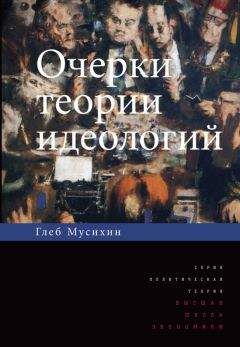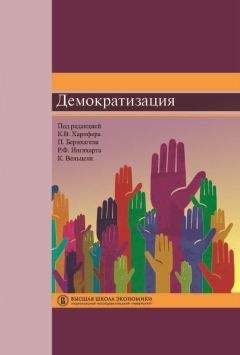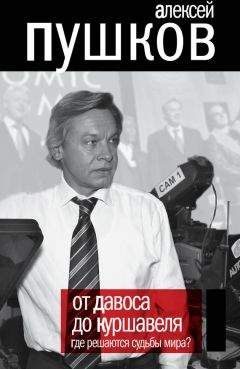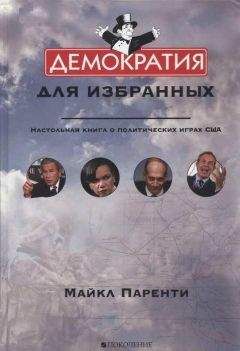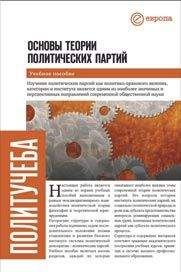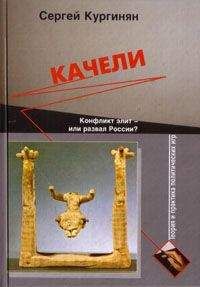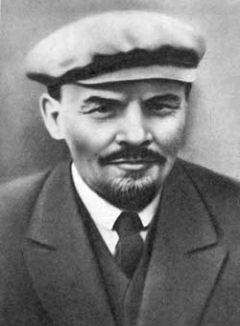Чарльз Эндрейн - Сравнительный анализ политических систем
Скачивание начинается... Если скачивание не началось автоматически, пожалуйста нажмите на эту ссылку.
Жалоба
Напишите нам, и мы в срочном порядке примем меры.
Описание книги "Сравнительный анализ политических систем"
Описание и краткое содержание "Сравнительный анализ политических систем" читать бесплатно онлайн.
Когда мы смотрим на политическую карту мира, то вряд ли нам приходит в голову мысль провести скрупулезный анализ всего многообразия существующих на Земле политических систем. Эту сложную, но выполнимую задачу поставил в своей книге профессор Ч. Эндрейн. Он не только сравнил различные политические системы, выявил общее и особенное в их функционировании, но и рассмотрел роль элит, групп и отдельных индивидуумов в проведении политического курса. Книга, пользующаяся большой популярностью в странах Запада, ныне станет доступна и нашему читателю, постоянно ощущающему потребность в учебной литературе по политическим наукам. Ее издание рекомендовано Российской ассоциацией политических наук.
Издание осуществлено при содействии Отдела по вопросам печати и культуры Посольства США
152
Richard C. Gripp, «Political Reform in Three Asian Polities», Asian Profile 17 (April 1989): 189–97; Bret L. Billet, «South Korea at the Crossroads: An Evolving Democracy or Authoritarianism Revisited?» Asian Survey 30 (March 1990): 300—311; Bruce Cumings, «The Abortive Abertura: South Korea in the Light of Latin American Experience», New Left Review, no. 173 (January–February 1989): 5—32; Aiden Foster Carter, «Korea: From Dependency to Democracy?» Capital and Class, no. 33 (Winter 1987): 7—19; James Cotton, «From Authoritarianism to Democracy in South Korea», Political Studies 37 (June 1989): 244–59; Han Sung–Joo, «South Korea in 1987: The Politics of Democratization», Asian Survey 28 (January 1988): 52–61; Hong Yung Lee, «South Korea in 1992: A Turning Point in Democratization», Asian Survey 33 (January 1993): 32–42; Chung–In Moon, «The Demise of a Developmentalist State? Neoconservative Reforms and Political Consequences in South Korea», Journal of Developing Societies 4 (January–April 1988): 67–84; Stephan Haggard and Chung–In Moon, «Institutions and Economic Policy: Theory and a Korean Case Study», World Politics 42 (January 1990): 210–37; Doh Ghul Shin, Myung Chey, and Kwang–Woong Kim, «Cultural Origins of Public Support for Democracy in Korea: An Empirical Test of the Douglas–Wildavsky Theory of Culture», Comparative Political Studies 22 (July 1989): j 217–38; Aie–Rie Lee, «Culture Shift and Popular Protest in South Korea», Comparative Political Studies 26 (April 1993): 63–80; Hagen Koo, «Middle Classes, Democratization, and Class Formation: The Case of South Korea», Theory and Society 20 (August 1991): 485–509; John Lie, «Democratization and Its Discontents: Origins of the Present Crisis in South Korea», Monthly Review 42 (February 1991): 38–52; Wonmo Dong, «The Democratization of South Korea: What Role Does the Middle Class Play?» Korea Observer 22 (Summer 1991): 257–82; Jurgen Domes, «Taiwan in 1991: Searching for Political Consensus», Asian Survey 32 (January 1992): 42–49; Jurgen Domes, «Taiwan in 1992: On the Verge of Democracy», Asian Survey 33 (January 1993): 54–60; Tun–Jen Cheng, «Democratizing the Quasi–Leninist Regime in Taiwan», World Politics 41 (July 1989): 471–99; Wen–hui Tsai, «Social Changes under the Impacts of Economic Transformation in Taiwan: From Industrialization to Modernization during the Post–World War II Era», Studies in Comparative international Development 24 (Summer 1989V 24–41 .
153
Adam Przeworski, Democracy and the Market: Political and Economic Reforms in Eastern Europe and Latin America (New York: Cambridge University Press, 1991), 51–99; Nancy Bermeo, «Democracy and the Lessons of Dictatorship», Comparative Politics24 (April 1992): 273–91; Chong–Min Park, «Authoritarian Rule in South Korea: Political Support and Governmental Performance», Asian Survey 31 (August 1991): 743–61; James Petras, «Global Transformations and the Future of Socialism in Latin America», New Political Science, nos. 18–19 (Winter 1990): 181–93; Frank, «Economic Ironies in Europe», 41—56.
154
См.: Christopher Lasch, The True and Only Heaven: Progress and its Critics (New York: Norton, 1991).
155
John Mortimer, Paradise Postponed (New York: Penguin Books, 1986), 303
156
Ibid., 287.
157
Young С Kim, «North Korea 1979: National Unification and Economic Development», Asian Survey 20 (January 1980): 60–61.
158
С I. Eugene Kim, «North Korea Today», Korea and World Affairs 6 (Winter 1982V 513–14.
159
Aidan Foster–Carter, «North Korea: The End of the Beginning», Journal of Communist Studies 3 (December 1987): 64–85; Barry Gills, «North Korea and the Crisis of Socialism: The Historical Ironies of National Division», Third World Quarterly 13, no. 1 (1992): 107–30.
160
Brook Larmer, «Mexico's Oil Bust Turns Paradise into Purgatory», Christian Science Monitor, November 21,1988, p. 9; Kevin J. Middlebrook, «Dilemmas of Change in Mexican Politics», World Politics (October 1988): 120–41.
161
Anthony Giddens, ed. and trans., Emile Durkheim: Selected Writings (London: Cambridge University Press, 1972); Steve Fenton, Durkheim and Modern Sociology (London: Cambridge University Press, 1984); Emile Durkheim, Education and Sociology (Glencoe, IL: The Free Press, 1956), 27, 87, 124–26; Emile Durkheim, Moral Education (New York: The Free Press of Glencoe, 1961), 8, 146–49, 156; Jonathan H. Turner, «Emile Durkheim's Theory of Social Organization», Social Forces 68 (June 1990): 1089—1103; Lise Ann Tole, «Durkheim on Religion and Moral Community in Modernity», Sociological Inquiry 63 (February 1993): 1–29.
162
См.: Max Weber, Economy and Society: An Outline of Interpretive Sociology, ed. Guenther Roth and Claus Wittich (New York: Bedminster Press, 1968), esp. 54–57, 1393–95; W. G. Runciman, ed., Max Weber Selections in Translation, trans. E. Matthews (London: Cambridge University Press, 1978), 212–84, 341–54; Reinhard Bendix, Max Weber: An intellectual Portrait (Garden City, NY: Anchor Books, 1962), 285–328, 385–494; David Beetham, Max Weber and the Theory of Modern Politics, 2d ed. (Cambridge, England: Polity Press, 1985); Randall Collins, Max Weber: A Skeleton Key (Beverly Hills, CA: Sage Publications, 1986); David Held, Models of Democracy (Stanford, CA: Stanford University Press, 1987), 143–64; Mark Warren, «Max Weber's Liberalism for a Nietzschean World», American Political Science Review 82 (March 1988): 31—50; Lawrence A. Scaff, Fleeing the Iron Cage: Culture, Politics, and Modernity in the Thought of Max Weber (Berkeley: University of California Press, 1989); Andrew M. Koch, «Rationality, Romanticism and the Individual: Max Weber's 'Modernism' and the Confrontation with 'Modernity,'» Canadian Journal of Political Science 26 (March 1993): 125—44; Volker Heins, «Weber's Ethic and the Spirit of Anti–Capitalism», Political Studies 41 (June 1993): 269–83.
163
Об элитарных интерпретациях плюралистических систем см.: С. Wright Mills, The Power Elite (New York: Oxford University Press, 1959); G. William Domhoff, The Power Elite and the State: How Policy Is Made in America (New York: Aldine de Gruyter, 1990).
164
Alexander Hamilton, James Madison, adn John Jay, The Federalist Papers, ed. Clinton Rossiter (New York: New American Library, 1961), 324.
165
Ibid., 77–84, 288–325, 377–88. Анализ теорий Медисона см.: Jeffrey Leigh Sedgwick, «James Madison and the Problem of Executive Character», Polity 21 (Fall 1988): 5–23; Daniel Walker Howe, «Why the Scottish Enlightenment Was Useful to the Framers of the American Constitution», Comparative Studies in Society and History 31 (July 1989): 572–87; Paul Peterson, «The Rhetorical Design and Theoretical Teaching of Federalist No. 10», Political Science Reviewer 17 (Fall 1987): 198–218; Joyce Appleby, «The American Heritage: The Heirs and the Disinherited», Journal of American History 74 (December 1987): 798–813; Sheldon S. Wolin, Politics and Vision (Boston: Little, Brown, 1960), 389–93; Sheldon Wolin, «The Idea of the State in America», in The Problem of Authority in America, ed. John P. Diggins and Mark E. Kann (Philadelphia, PA: Temple University Press, 1981), 41–57.
166
Karl Marx, Political Writings, vol. 1: The Revolutions of 1848, ed. David Fembach (New York: Vintage Books, 1974), 315–16. См. также: Karl Marx, Political Writings, vol. 2: Surveys from Exile, ed. David Fembach (New York: Vintage Books,1974), 176; Karl Marx, Political Writings, vol. 3: The First International and After, ed. David Fernbach (New York: Vintage Books, 1974), 280–81.
167
Marx, The First International, 81, 91–92, 145, 250, 270, 333–35, 355, 373–75; Marx, Revolutions of 1848, 86–87, 325–26; Marx, Surveys from Exile, 243–44; Karl Marx, Early Writings, trans. Rodney Livingstone and Gregor Benton (New York: Vintage Books, 1975), 257; Karl Marx and Frederick Engels, The German Ideology, ed. C. J. Arthur (New York: International Publishers, 1970), 117–18; Daniel R. Sabia, Jr., «Rationality, Collective Action, and Karl Marx», American Journal of Political Science 32 (February 1988): 50–71; Farshad A. Araghi, «The Cpncept of Development: Smith and Marx Revisited», Sociological Spectrum 8 (October–December 1988): 371–89; J. С Glass and W. Johnson, «Metaphysics, MSRP and Economics», British Journal for the Philosophy of Science 39 (September 1988): 313–29; Klaus von Beyme, «Karl Marx and Party Theory», Government and Opposition 20 (Winter 1985): 70–87; John Ehrenberg, «Karl Marx and the Dictatorship of the Proletariat», in Research in Political Economy, vol. 12, ed. Paul Zarembka (Greenwich, CT: JAI Press, 1990), 187–208; Frederic L. Pryor, «Some Economics of Utopia: The Case of Full Communism», Survey29 (Summer 1985): 70–101.
168
V. I. Lenin, What Is to Be Done?(Peking: Foreign Languages Press, 1973), 37, 98, ; 136–38, 154, 199–202; V. I. Lenin, V. I Lenin: Selected Works (New York: InternationalPublishers, 1971), 281–98, 323–36, 374–79, 417, 465–88, 501–46, 572–73, 624–26, 660; Pierre Bimbaum, «Universal Suffrage, the Vanguard Party and Mobilization in Marxism», Government and Opposition 20 (Winter 1985): 53–69.
169
Alex Inkeles and David H. Smith, Becoming Modern: Individual Change in Six Developing Countries (Cambridge, MA: Harvard University Press, 1974), esp. 251–351.
170
AM Banuazizi, «Social–Psychological Approaches to Political Development», in Understanding Political Development, ed. Myron Weiner and Samuel P. Huntington (Boston: Little, Brown, 1987), 281–316; Charles F. Andrain, Political Change in the Third World (Boston: Unwin Hyman, 1988), 252–79; Richard Falk, «Religion and Politics: Verging on the Postmodern», Alternatives 18 (July 1988): 379–94.
171
David E. Apter, Rethinking Development: Modernization, Dependency, and Postmodern Politics (Newbury Park, CA: Sage Publications, 1987), 12–25; Leonard Binder, Islamic Liberalism: A Critique of Development Ideologies (Chicago: University of Chicago Press, 1988), 24–37; Jan Nederveen Pieterse, «Dilemmas of Development Discourse: The Crisis of Developmentalism and the Comparative Method», Development and Change 22 (January 1991): 5–29; Kate Manzo, «Modernist Discourse and the Crisis of Development Theory», Studies in Comparative International Development 26 (Summer 1991): 3–36; Edward A. Tiryakian, «Modernisation: Exhumetur in Pace (Rethinking Macrosociology in the 1990s)», International Sociology 6 (June 1991): 165–80; Diane Ethier, «Democratic Consolidation in Southern Europe, Latin America and Southeast Asia: Comparative Perspectives», Journal of Developing Societies! (July–October 1991): 195–217; Karen L. Remmer, «New Wine or Old Bottlenecks? The Study of Latin American Democracy», Comparative Politics 23 (July 1991 ): 479–95.
172
Samuel P. Huntington, Political Order in Changing Societies (New Haven, CT: Yale University Press, 1968).
173
Samuel P. Huntington, «Conservatism as an Ideology», American Political Science Review 51 (June 1957): 460–61.
174
Samuel P. Huntington, The Third Wave: Democratization in the Late Twentieth Century (Norman: University of Oklahoma Press, 1991); Held, Models of Democracy 143–64.
175
См. след. сочинения Сэмюеля Хантингтона: Samuel P. Huntington: Political Order in Changing Societies, esp. 1–92, 142–44, 192–98, 262–63, 344, 401; The Soldier and the State: The Theory and Politics of Civil–Military Relations (Cambridge, MA: Harvard University Press, 1957); American Military Strategy (Berkeley: Institute of International Studies, University of California at Berkeley, 1986); «Transnational Organizations in World Politics», World Politics 25 (April 1973): 334–68; «The U.S. — Decline or Renewal?» Foreign Affairs 67 (Winter 1988/89): 76–96; «The Goals of Development», in Understanding Political Development, ed, Weiner and Huntington, 3—32. В «Целях развития» (с. 19) Хантингтон подчеркивает: «В целом политологическая литература имеет тенденцию во временном аспекте ставить порядок раньше демократии. В «Солдате и государстве», на с. 465, мы находим противопоставление «показного индивидуализма», «утомительной монотонности и невообразимого разнообразия и беспорядочного меркантилизма маленьких городков» в Хайленд Фолз «упорядоченной безмятежности», «структурированной целесообразности» военной академии США в Вест–Пойнте. Критику институционалистской теории развития см. в: David E. Apter, Political Change: Collected Essays (London: Frank Cass, 1973), 167, 195–96, 198, 208; Cal Clark and Jonathan Lemco, «The Strong State and Development: A Growing List of Caveats», Journal of Developing Societies 4 (January–April 1988): 1—8. Столь же безрадостную оценку перспектив демократии в развивающихся странах см. в: Robert A. Scalapino, «Modernization and Revolution in Asia», Problems oj Communism 41 (January–April 1992): с 181: «традициям и стадии развития многих возникающих государств более подходит авторитарный плюрализм, чем парламентская демократия».
Подписывайтесь на наши страницы в социальных сетях.
Будьте в курсе последних книжных новинок, комментируйте, обсуждайте. Мы ждём Вас!
Похожие книги на "Сравнительный анализ политических систем"
Книги похожие на "Сравнительный анализ политических систем" читать онлайн или скачать бесплатно полные версии.
Мы рекомендуем Вам зарегистрироваться либо войти на сайт под своим именем.
Отзывы о "Чарльз Эндрейн - Сравнительный анализ политических систем"
Отзывы читателей о книге "Сравнительный анализ политических систем", комментарии и мнения людей о произведении.






